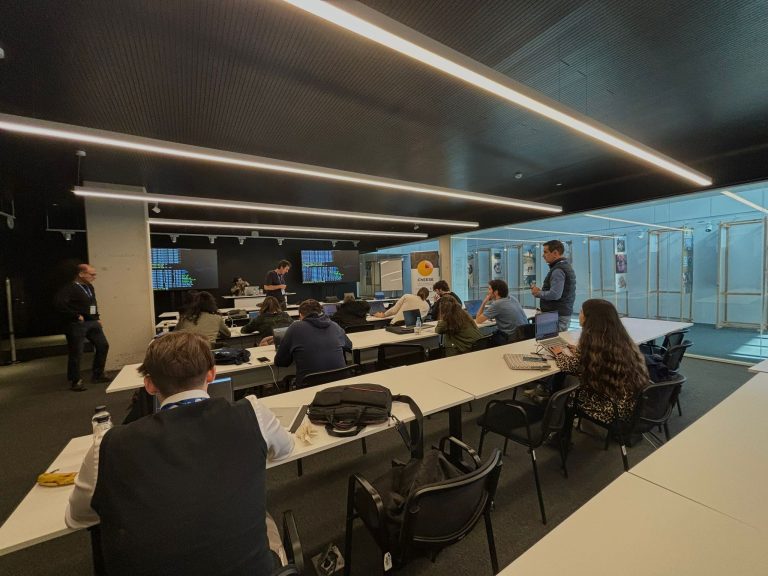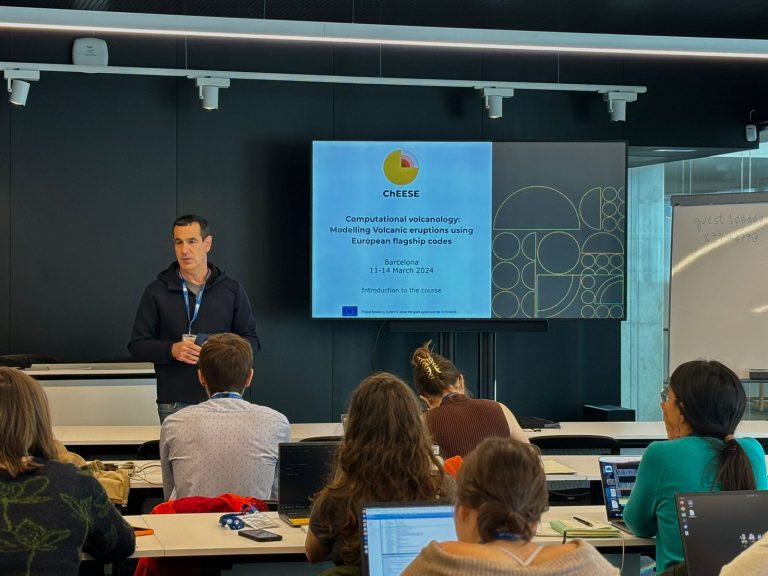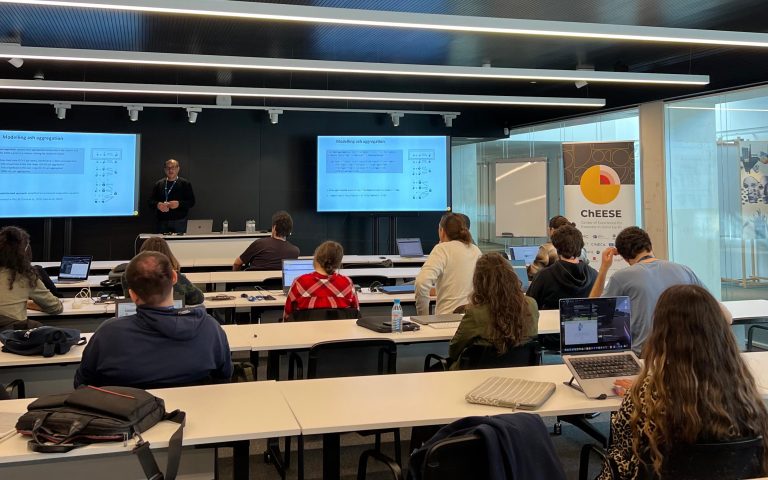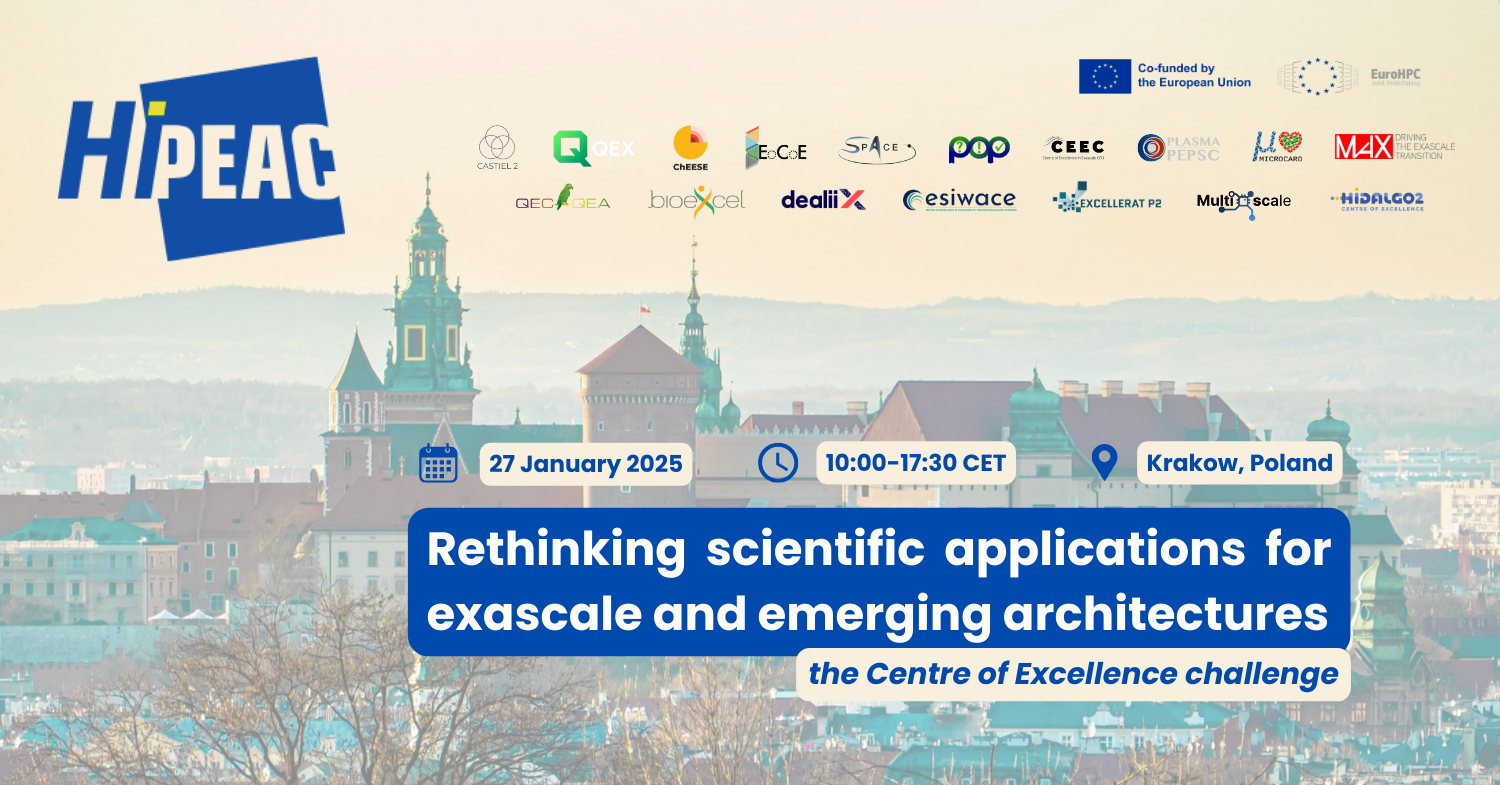Focusing on the application of various HPC flagship codes, the training offered insights into OpenPDAC and FALL3D models. OpenPDAC, an advanced offline Eulerian-Lagrangian model, is designed for the simulation of volcanic flows and is based on the robust OpenFOAM C++ toolbox. This model facilitates the study of the dynamics of multiphase mixtures of gases and particles, critical for understanding volcanic eruption dynamics.
FALL3D, on the other hand, serves as an invaluable tool for the atmospheric transport and ground deposition of volcanic ash, aiding in the prevention of aircraft encounters with ash clouds. The course emphasized the practical application of these models, enabling participants to gain hands-on experience in setting up simulations, monitoring supercomputing job executions, and analyzing outcomes.



The academic staff for this course comprised renowned experts from various institutions, including the Spanish National Research Council (CSIC) and the National Institute of Geophysics and Volcanology (INGV). These included Arnau Folch, Tomaso Esposti-Ongaro, Mattia De’Michieli Vitturi, Antonio Costa, and several others, all of whom brought extensive expertise and insights into computational volcanology and high-performance computing applications.
Participants left the course with not only enhanced knowledge of computational volcanology but also valuable experience in utilizing leading-edge software and tools essential for modeling volcanic activities. This course, part of ChEESE CoE’s ongoing training programming, reflects the Center’s commitment to fostering education and research in HPC applications for environmental hazards.



